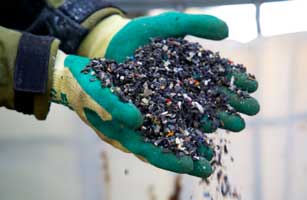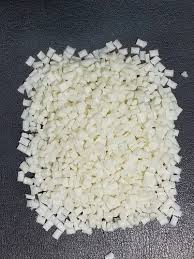Expansions: Ineos Inovyn launches PVC recycling plants in Belgium; BASF to up capacity for nylon/PBT in India

Across Europe around 30% of PVC waste is currently mechanically recycled. Thus, vinyl maker Ineos Inovyn has launched two new PVC pilot plants at its Jemeppe-sur-Sambre site in Belgium, where Ineos Inovyn’s main R&D centre is located, to accelerate technologies for recycling PVC which are not mechanically recyclable.
The project forms part of a strategic ‘Project Circle’ initiative, which aims to commission an industrial unit with a 40 kilotonnes recyclable capacity by 2030.
Project Circle ambitiously targets the remaining waste which cannot be mechanically recycled, by developing new technologies including dissolution, pyrolysis and gasification.
The company says its goal is to make all PVC waste recyclable and aim to have its first industrial unit ready by 2030. These units draw on Vinyloop’s technology experience from 2002 to 2018, and are designed to upgrade PVC dissolution technology which supports the recycling of complex PVC waste, including legacy additives.
Industry wide collaboration plays an important part of Project Circle and to support this, it has also joined two Belgium consortiums. The first ‘CIRC-PVC’ covers the entire chain, from collecting PVC waste at construction-demolition sites to the production of rejuvenated PVC not containing legacy additives.
This brings together industrial partners and experts from across different stages of the value chain: Entreprises Générales Louis Duchêne, Vanheede Environmental Logistics, ROVI-TECH, ECO-DEC, Avient Corporation’s Belgium site, Centexbel, the University of Liège and Ineos Inovyn.
The second consortium ‘DISSOLV’ will drive the development for PVC waste from flooring, carpets and tarpaulin applications which cannot be recycled today, due to the presence of textile fibres and legacy additives. Its members include Beaulieu International Group, Sioen Industries, Empire Carpets International, ExxonMobil, Centexbel and Ineos Inovyn.
Luc Castin, Ineos Inovyn Sustainability Manager said, “By working together across the value chain we can leverage our collective expertise, to develop faster solutions and bring more recycled products to the market.”

In other news, BASF India Limited will increase the production capacity of its Ultramid polyamide (PA) and Ultradur polybutylene terephthalate (PBT) compounding plant in Panoli, Gujarat and Thane, Maharashtra. Its Polyurethane Technical Development Centre India, to be inaugurated on 28 May in Mumbai, will support market development of polyurethane applications in industries such as transportation, construction, footwear, appliances and furniture.
With the production capacity increase of over 40% in Panoli and Thane, BASF adds it is well-positioned to meet the strong market demand for the high-performance material solution in India. The increased capacity will be available in 2H 2025.
The centre houses state-of-the-art applications equipment in an approximately 2,000 sq meter space. It offers improved customer support services ranging from troubleshooting to customised formulations, line trials, and customer training sessions.
It can further harness the know-how, synergies and competencies within our existing global polyurethane network, to provide fast and advanced technical service to customers. This will help drive innovation with customers alongside the Creation Center, located at BASF‘s Innovation Campus in Mumbai.
(PRA)SUBSCRIBE to Get the Latest Updates from PRA Click Here»





